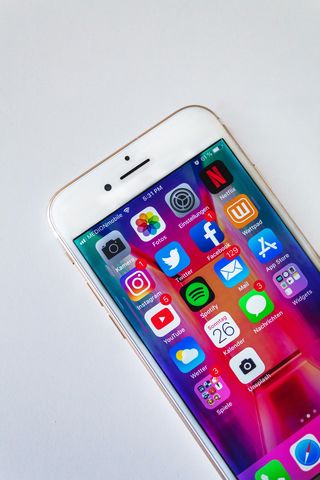Media
Is Social Media Toxic to Your Teen's Mental Health?
New research suggests a negative effect, but another recent study disagrees.
Posted September 14, 2019 Reviewed by Matt Huston
There are few things that parents express more consistent concern about than their kids' screen time. Wouldn't it be nice to find some clarity on what's okay for kids and what isn't? A study published in JAMA Psychiatry three days ago concludes in no uncertain terms that social media is negative for our teens' mental health. Yet only a few weeks ago, a different study concluded that screen time does not have a negative effect on our kids. What gives?
The JAMA paper
After pointing out the potential positives of social media, such as knowing about what's going on in your social group and "enhancement of social support networks," the authors raised concerns. "One-quarter of adolescents think social media has a mostly negative influence on people their age, pointing to reasons like rumor spreading, lack of in-person contact, unrealistic views of others’ lives, peer pressure, and mental health issues," the paper notes.
"The more time you spent on social media, adolescents were more likely to have issues like anxiety and depression on follow-up," lead researcher Kira Riehm, a doctoral student at Johns Hopkins Bloomberg School of Public Health, said to HealthDay. "It was a pretty clear-cut association."
The JAMA study data
The study pulled data from the Population Assessment of Tobacco and Health (PATH), a federally funded 2013-2016 survey of 6595 adolescents ages. The participants were 12-15 years old at the beginning of the study, and males and females were almost equally represented. The study was prospective (a plus), but was also limited because the information was self-reported by the teenagers.

Data was collected based on three waves of surveys. The first looked at the history of mental health problems. The second wave broke the kids into groups based on how much social media time they reported on a typical day: none, ≤30 minutes, >30 minutes to ≤3 hours, >3 hours to ≤6 hours, and >6 hours. Finally, the third wave of surveys collected self-reports of "past-year internalizing problems alone, externalizing problems alone, and comorbid internalizing and externalizing problems."
Internalizing symptoms refer to suffering on the inside. Symptoms like anxiety, depression, suicidal thoughts, negative self-image, and loneliness are all examples of internalizing. On the other hand, externalizing symptoms are directed outward. Here we might see impulsivity, breaking the rules or poor attention.
The JAMA study results
At levels of social media use of >30 minutes to 3 hours a day, the risk of internalizing symptoms went up almost two times. At >3 hours a day the risk jumped to 2.5 times, and at >6 hours it went to 3 times. More time on social media was associated with more anxiety, depression, and loneliness.
Is social media the problem or the symptom?
Whenever a study like this comes out, the first question doctors ask is "Which came first, the chicken or the egg?" Is the time spent on social media the cause of the mental health problems, or do mental health problems cause kids to spend more time on social media? The research team attempted to answer this question by controlling for pre-existing histories of mental health problems in study participants. That does not completely answer the question, but it's a start.
When you adjust for pre-existing mental health problems, it's at the 3 hour mark that the effect of social media remained statistically significant.
A study in Clinical Psychological Science disagrees
The conclusions of the recent paper in Clinical Psychological Science were so much more comforting. Author Michaeline Jensen, assistant professor of psychology at the University of North Carolina at Greensboro, said: “Contrary to the common belief that smartphones and social media are damaging adolescents’ mental health, we don’t see much support for the idea that time spent on phones and online is associated with increased risk for mental health problems.”
Why does the research disagree?
How can we try to reconcile two studies that apparently disagree this widely? It helps to look at what each study tested. When we do, it becomes apparent that they actually looked at different things. The JAMA study looked at self-reports of typical daily time on social media, and then recollection of what the past year was like in terms of mental health. The Clinical Psychological Science study tracked day to day screen time and self-reported symptoms, but did not break down what kind of screen time was involved. These are two very different data sets.
What's the take-away?
Perhaps the total screen time doesn't matter so much, but the time on social media does. More than 3 hours a day on social media sounds excessive for anyone, and parents can feel reasonable limiting time to less than that. Parents of vulnerable teens who have already struggled with mental health would be justified in limiting social media even more.
How can we limit social media without worrying about overall screen time in teens? The AAP's Family Media Plan is a great place to start and includes a media time calculator. Apple devices even allow parents to set time limits on specific apps.
References
Riehm, Kira, MsC., Feder, Kenneth, Phd., et al. (Sept. 11, 2019) "Associations Between Time Spent Using Social Media and Internalizing and Externalizing Problems Among US Youth" JAMA Psychiatry.




